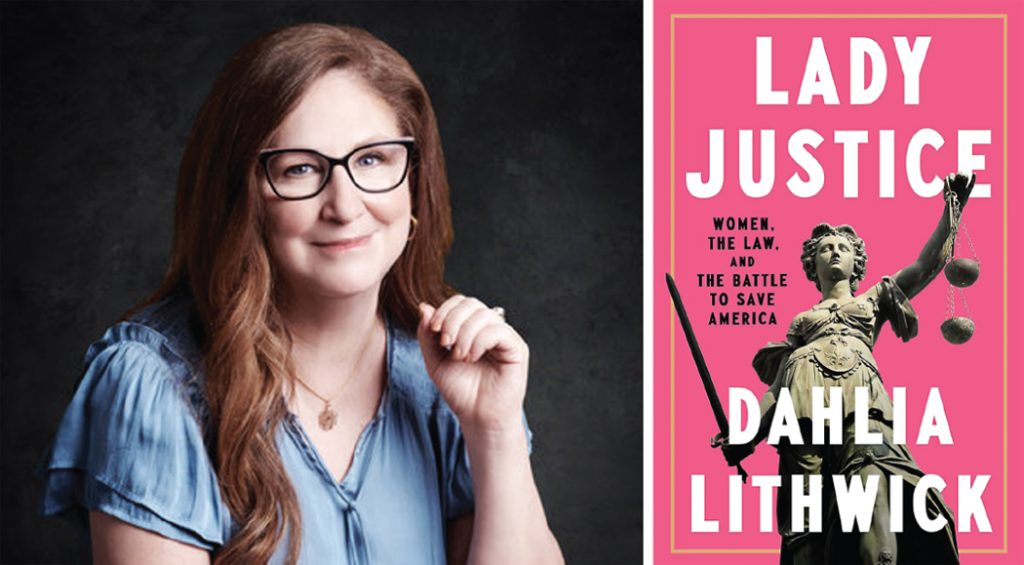
Way back in November 2009, I reviewed a work in progress by Dahlia Lithwick. In that piece, I described her this way:
“Dahlia Lithwick is my favorite writer for Slate, the online news and commentary magazine. Her beat is the Supreme Court, where she covers oral arguments, offering up nuanced and frequently hilarious analyses delivered with palpable passion. I have been heard to say. . . that though I discovered her work because of my fascination with the highest court in the land, I’m such a fan of her writing that I’d read her no matter what the topic or genre.”
Many years later, nearly all of that description still applies—with the notable exception that Lithwick no longer attends oral arguments at the Supreme Court though she is still on jurisprudence beat as a senior editor for Slate.
Back in 2009, I was reviewing Lithwick’s stab at writing a novel, a project she undertook on Slate, soliciting feedback and suggestions from her readership. I wrote of Saving Face:
“Despite a vote of no confidence from best-selling author Laura Lippman (whose work, for the record, I think is only fair), who wrote three days after the project began in order to chide Lithwick for the audacity of her of effort, Saving Face is a fun read. . . .
“Lithwick handles the tricky present tense with seeming ease and the book is consistently funny. It is fair to say that the novel reads like a strong first draft, as it lacks some of the necessary connective tissue that would make the narrative flow a bit better and deepen our understanding of the characters and their situations. That said, Lithwick seems to have a strong sense of the essential moments in her story and she delivers them in an enjoyable, engaging style.”
Fortunately for all those who admire Lithwick’s approach to covering the law and politics, Saving Face did not lead to a shift in focus to fiction. Instead, 2022 saw the publication of something more squarely in her wheelhouse. Lady Justice: Women, the Law, and the Battle to Save America, newly out in paperback, is a celebration of remarkable women—mostly lawyers—who took a stand for the rule of law and for what was right in the face of intense opposition and cruel policies from the Trump administration and its allies.
The book highlights all of the best qualities of Lithwick’s work. The prose is voicey, her personal story is a key part of the narrative (including an explanation of why she no longer attends oral arguments), the analysis is sharp, and the blend of hope and concern feels perfectly balanced. These are stories of women using the law to make things better—but plenty of things are still plenty bad. The book’s epilogue engages with the Dobbs decision that overturned Roe v. Wade, a stark reminder that there is much more to do—by women and for women. Lithwick’s Lady Justice is inspiring, essential work.
